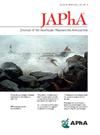新药剂师如何处理 COVID-19 的错误信息:定性研究。
IF 2.5
4区 医学
Q3 PHARMACOLOGY & PHARMACY
Journal of the American Pharmacists Association
Pub Date : 2024-08-31
DOI:10.1016/j.japh.2024.102226
引用次数: 0
摘要
背景:2020 年和 2021 年毕业的新药剂师(药学博士)在 COVID-19 大流行期间进入职场面临着独特的挑战。他们必须在适应不断变化的角色(包括 COVID-19 疫苗的分发和管理)的同时,驾驭由患者驱动的错误信息。了解新药剂师在此期间的经历对于专业发展和患者护理至关重要:本研究旨在描述新药剂师在处理患者提供的 COVID-19 疫苗错误信息时的经验:对圣约翰大学药学与健康科学学院(SJUCPHS)和密西西比大学药学院(UMSOP)招募的2020届和2021届药学博士毕业生进行了半结构化变焦访谈,直至达到饱和。访谈问题基于 HURIER 模型和世界卫生组织关于如何应对疫苗否认者的算法。通过演绎式主题内容分析进行数据分析,并使用定性研究报告综合标准报告研究结果:共进行了13次访谈,其中61.5%的参与者来自上海交大,38.5%来自上海大学。他们在不同的药房工作,包括独立药房(30.8%)、连锁药房(23.0%)、长期护理药房(15.4%)和非住院护理/医院药房(30.8%)。新药剂师在大流行期间听到的 COVID-19 错误信息类型与世界卫生组织算法中列出的反疫苗论点的技巧和主题一致。新药剂师利用评估技能来识别可信的信息来源和信息,解释患者的语言和信息来源,并评估患者是否愿意接受纠正。所有新药剂师都对错误信息做出了反应,而不论其技术或主题如何;但是,反应机制可能会因技术或主题的不同而不同:对新药剂师管理健康误导信息的做法的基本了解可以为制定健康误导信息管理建议提供参考,并帮助药学院确定学生药剂师进一步培训的领域。本文章由计算机程序翻译,如有差异,请以英文原文为准。
How new pharmacists handled COVID-19 misinformation: A qualitative study
Background
New pharmacists, PharmD graduates of 2020 and 2021, faced the unique challenge of entering the workforce during the volatile and divisive COVID-19 pandemic. They had to navigate patient-driven misinformation while adapting to evolving roles, including the distribution and administration of COVID-19 vaccines. Understanding the experiences of new pharmacists during this period is crucial for professional development and patient care.
Objective
The study aimed to describe new pharmacists’ experiences of handling COVID-19 vaccine misinformation presented by patients.
Methods
Semi-structured Zoom interviews were conducted with PharmD 2020 and 2021 graduates recruited from St. John’s University College of Pharmacy and Health Sciences and the University of Mississippi School of Pharmacy until saturation was achieved. Interview questions were based on constructs of the Hearing, Understanding, Interpreting, Evaluating, Remembering, and Responding model and World Health Organization (WHO) algorithm on how to respond to vocal vaccine deniers. Data analysis was performed through deductive thematic content analysis, and findings were reported using the Consolidated Criteria for Reporting Qualitative Research.
Results
A total of 13 interviews were conducted, with 61.5% of participants from St. John’s University and 38.5% from UM. They worked in various pharmacy settings, including independent (30.8%), chain (23.0%), long-term care (15.4%), and ambulatory care/hospital pharmacies (30.8%). The types of COVID-19 misinformation new pharmacists heard during the pandemic align with the techniques and topics of anti-vaccine arguments outlined by the WHO’s algorithm. New pharmacists utilized evaluation skills to identify credible sources and information, interpreted patients' language and sources, and assessed patients' willingness to be corrected. All new pharmacists responded to misinformation regardless of the technique or topic; however, the mechanism of response may have differed depending on whether a technique or topic was presented.
Conclusions
This baseline understanding of new pharmacists’ practices in managing health misinformation can inform the development of recommendations for health misinformation management and assist pharmacy schools in identifying areas for further training for student pharmacists.
求助全文
通过发布文献求助,成功后即可免费获取论文全文。
去求助
来源期刊
CiteScore
3.30
自引率
14.30%
发文量
336
审稿时长
46 days
期刊介绍:
The Journal of the American Pharmacists Association is the official peer-reviewed journal of the American Pharmacists Association (APhA), providing information on pharmaceutical care, drug therapy, diseases and other health issues, trends in pharmacy practice and therapeutics, informed opinion, and original research. JAPhA publishes original research, reviews, experiences, and opinion articles that link science to contemporary pharmacy practice to improve patient care.

 求助内容:
求助内容: 应助结果提醒方式:
应助结果提醒方式:


